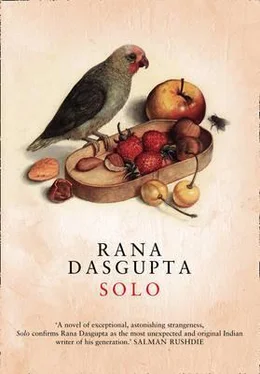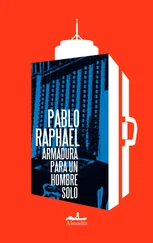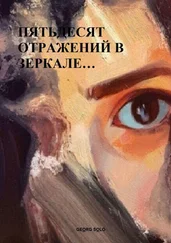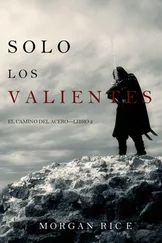‘What is this fabulous business of yours?’
Kakha spoke lightly, with a smile on his face.
Khatuna said,
‘I’m still working it out. I haven’t got all the answers yet.’
‘Do you think today’s your lucky day?’
She glanced at him severely.
‘I’m not here to sleep with you,’ she said. ‘With that stain on your face you won’t seduce me, no matter how rich you are.’
They drank their beer, and he said,
‘Come on. I want to show you something.’
They got into the car. Bodyguards fanned out around the entrance while they reversed into the street.
‘Where are we going?’ asked Khatuna.
‘My house.’
‘I thought this was your house?’
He laughed. ‘This is just for storage: it’s temporary. While my house is being built.’
They drove up into the hills behind the old city, nearly to the television tower. Khatuna loved his car, which took no account of how steep the roads were. On top of a generous outcrop were the dilapidated outer walls of an old castle.
‘ This is my house.’
He called from his phone. The gate opened, and they drove through into a courtyard.
Inside the ancient walls, the main building stood straight and thickset. There was a massive front door and windows with steel shutters.
‘The building is totally new. We pulled down the old fort and saved the bricks. We built the most advanced security installation in Georgia, then we put the medieval bricks on the façade so it looks just like it always did.’
There was a tower on one side of the house, with a steep conical roof like on the old churches.
‘The doors are explosive-proof steel, and there’ll be a new perimeter wall, four metres high, with electric fencing, cameras, the lot. It will be totally secure. I have a shipment of Rottweilers arriving soon from Russia. There’s a man called Sergei in a shitty small town outside Moscow who trains the best guard dogs in the world.’
They walked around the building. From inside came the sound of saws and drills. They ran into two men smoking together; Kakha introduced them.
‘This is my cousin, Vakhtang. And our architect from Moscow, Vladimir.’
The ground was wet and hacked. Hundreds of Corinthian pillars were piled up on tarpaulin sheets.
‘We’ll clean all this up,’ said Kakha. ‘We’ll landscape everything, put in trees and grass, make it look really good.’
‘It will look really good,’ confirmed Vakhtang, who looked like a weightlifter. ‘Kakha’s going to landscape it and everything.’
‘Vladimir is the best there is,’ said Kakha, putting his hand on the architect’s shoulder. ‘Ask him to tell you all the things he’s done. He’s just built that new casino everyone’s talking about. My young friend here, Khatuna, she’s interested in architecture.’
Vladimir bowed. He said,
‘What do you think of our castle?’
‘It’s beautiful. It’s like old Tbilisi.’
‘It’s just like old Tbilisi. Mr Sabadze was very clear on this point. The proportions, the materials, the decorations, the angles of the arches — they’ve all been taken from medieval Georgian architecture. Have you seen the interior?’
‘No.’
‘Let me show you. Come.’
Inside, men were laying a marble floor, and the place was raw and empty. A mosaic portrait of Kakha Sabadze had already been set into one wall of the main room — the backdrop, it appeared, to a future waterfall. Chandeliers hung prematurely from the ceiling, their wires trailing to the floor. Vladimir walked in front, commenting on the construction-in-progress, while Kakha Sabadze followed on, speaking on the phone.
‘This room has been designed to show off Mr Sabadze’s art collection. You probably read about the two Warhols he just bought. We’ll hang them here. Over there is the gym. Then the billiard room and bar. The other side: the study. Gold walls and leather floor. Completely soundproofed.’
‘Amazing,’ said Khatuna.
‘The entire installation is served with custom internet and phone lines directly from the backbone. The lines come underground to a bunker in the basement. The place has its own water reservoir and electricity generator. Mr Sabadze wanted to make something that would last a thousand years.’
They went upstairs. Kakha’s cousin, Vakhtang, was running madly through the bare corridors, dribbling a football. He scored a goal against the wall, and exploded with his own awe, like eighty thousand people.
‘Master bedroom,’ indicated Vladimir.
Workmen were fixing gold pillars into the four corners of the room. In the middle of the main wall was a tall window surrounded by a border of stained glass. It had been designed to frame the enormous aluminium statue of the Mother of Georgia higher up on the hill.
‘Every morning, that statue will be the first thing Mr Sabadze sees. He has a strong affection for her. He feels she is a personal talisman.’
Khatuna went close to the window and looked down. A muddy hole lay abandoned in the grounds, the size of a small house. There was a length of hosepipe in the bottom, and a rainbow of oil slick, and two crows pecking at a plastic bag. The future swimming pool.
‘Khatuna. Come here.’ Kakha Sabadze was standing in the doorway. ‘Come with me.’
She followed him down the corridor, which opened out into a large hall. The outer wall was a sweeping semicircular window as if for air traffic control, and there, spread out below, was the entire city.
‘This is what I wanted you to see,’ he said.
‘All Tbilisi,’ she murmured.
She tapped the glass absent-mindedly with her knuckle.
‘Bulletproof,’ he said softly.
Just below them were the tiled roofs, ornate balconies and winding streets of the old city, sloping down towards the river. She could see into ramshackle courtyards, where boys and girls kicked footballs and washing hung low between the houses. Far away she could see groups of apartment towers, flecked with the royal blue of tarpaulin.
‘When I was at school,’ said Kakha Sabadze, ‘we were taught the general story of the world: feudalism is replaced by capitalism, and capitalism is replaced by socialism, and then history ends. And look at this: socialism has gone, and here is Kakha Sabadze standing in his castle looking down on all the peasants.’
He seemed to find it very amusing. He said,
‘Come to Moscow with me next week.’
‘Why?’
‘You speak nicely, you look good. I’m sure there are things you could do for me.’
‘Are you offering me a job?’
‘If that’s how you’d like to see it.’
‘It has to be something real. I’m not going to be your mistress.’
Kakha looked at her appraisingly.
‘Why don’t you start by furnishing my house? You like buildings: get the plans from Vladimir and take charge of the interior. Since you want a challenge, I’ll give you the whole job. Let me see how capable you are, behind all that talk.’
During the five days she spent in Moscow, Khatuna put somewhere close to thirty-nine million roubles on Kakha Sabadze’s credit card.
On her last night in the city, he took her for a drink in a bar behind Novy Arbat, not far from the Kremlin. Bodyguards waited outside, their bulging jackets zipped to their chins. The waitress who led them to their table was the whitest woman Khatuna had ever seen, her pallor accentuated with dark pink lipstick and an immense black wig with ringlets.
They talked about the things Khatuna had purchased for Kakha Sabadze’s house. He quizzed her about each item, and she explained how she had arrived at her decisions. She described the antique Turkish rug she had found for his study, and the crystal chandelier she was putting in the reception room.
Читать дальше
Конец ознакомительного отрывка
Купить книгу












